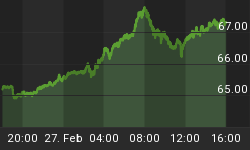I have a growing concern regarding paper money. That concern is what defines a "dollar". A dictionary definition describes a dollar as being a basic monetary unit equivalent to 100 cents. Further investigation reveals that a cent is equal to 1/100th of a dollar. This tautology is clearly an unsatisfactory answer.
Units of measure that are used within Canada are clearly defined within the Weights and Measures Act. For instance, a metre is not defined as simply a measure of length equal to 100 centimetres, but as being "equal to the distance travelled by light in a vacuum during 1/299,792,458 of a second" with a second being defined precisely as "the unit for the measurement of time, being the duration of 9,192,631,770 periods of the radiation corresponding to the transition between the two hyperfine levels of the ground state of the caesium-133 atom."
As seemingly arbitrary as these definitions may be, they do nevertheless define the term in a precise manner. These measurements do not change as they are defined by a measurable external standard.
The "dollar" is also a unit of measurement, being one of money. It seems unique when compared to the other units of measurement in that it does not have a formal definition. In fact, it is constantly changing in value. How can something that is constantly changing in value be used as an effective unit of measure?
On the homepage for the Bank of Canada there is a picture of the Ottawa headquarters with an underlying caption.

One can surmise from the context of the statement that the term "inflation" refers to an increase in the prices of consumer products rather than referring to an increase in the Canadian money supply.
According to the money supply figures from the Statistic Canada website from 2001 till 2006 and constructed the following chart.

In the span of five years the M3 money supply for Canada has increased over 44%! This seems quite remarkable given that wages and productivity are no where near these levels. How can such a proliferation of paper money not correspond to a sharp decrease in its unit value? Will this not inevitably result in higher prices for consumer products?
My deep concern is that there is not an underlying definition for the value of a dollar. Its value is determined by comparing it to other currencies that are no different in nature - all of them are increasing in supply and decreasing in terms of absolute value.
What is the definition of a "dollar"?















